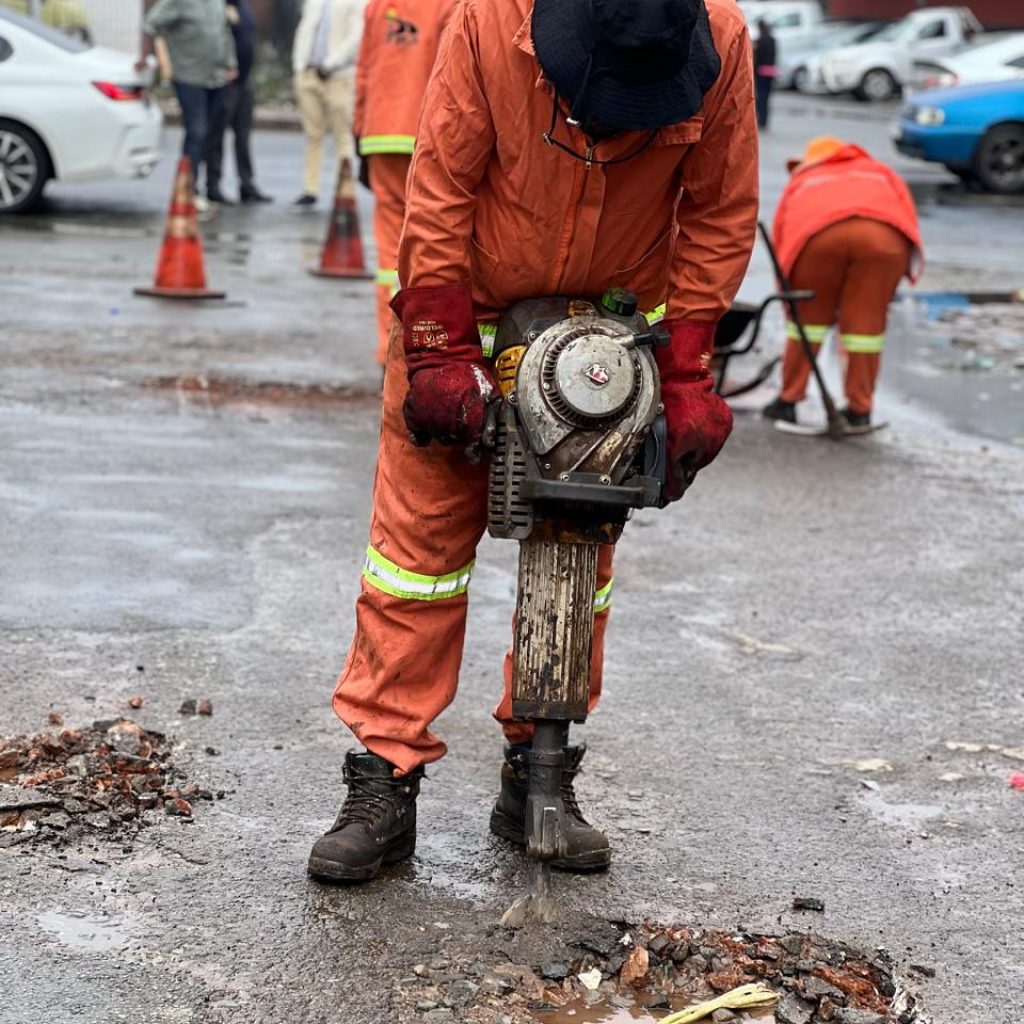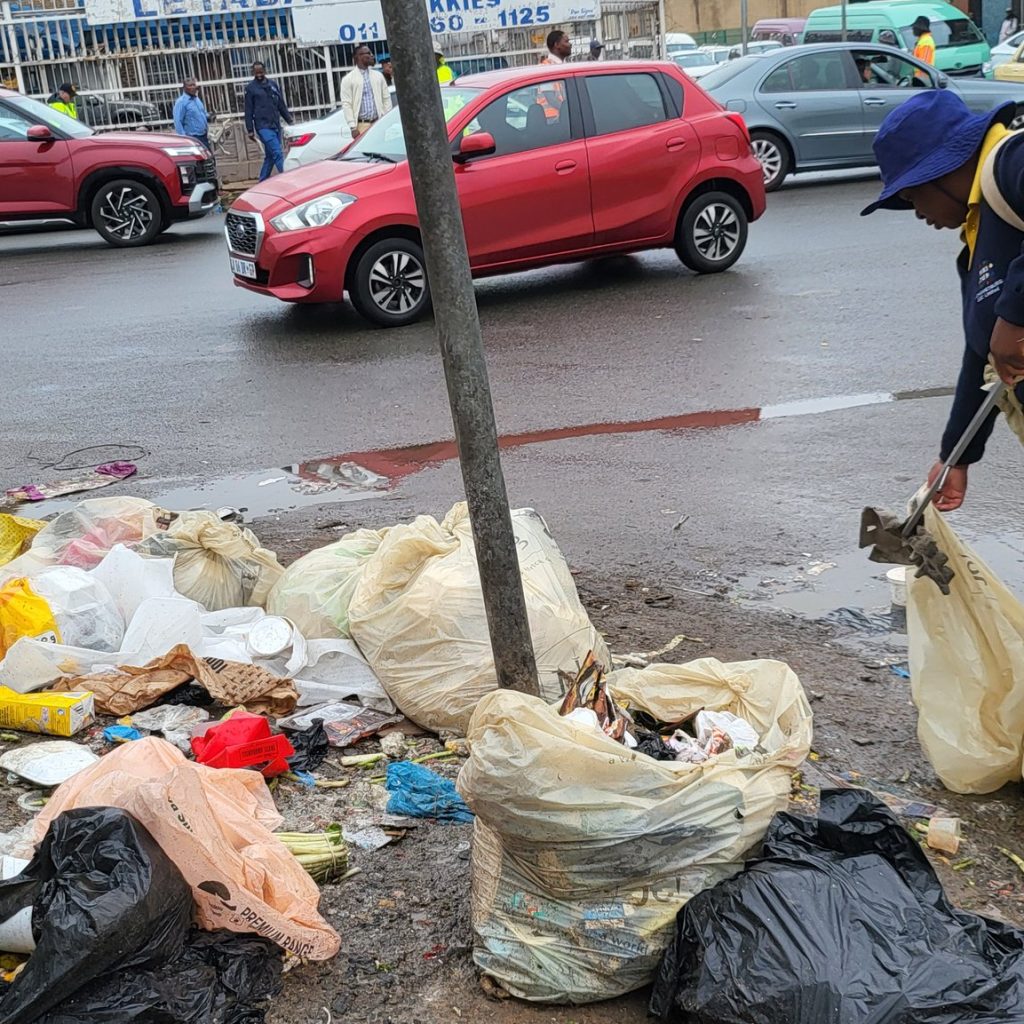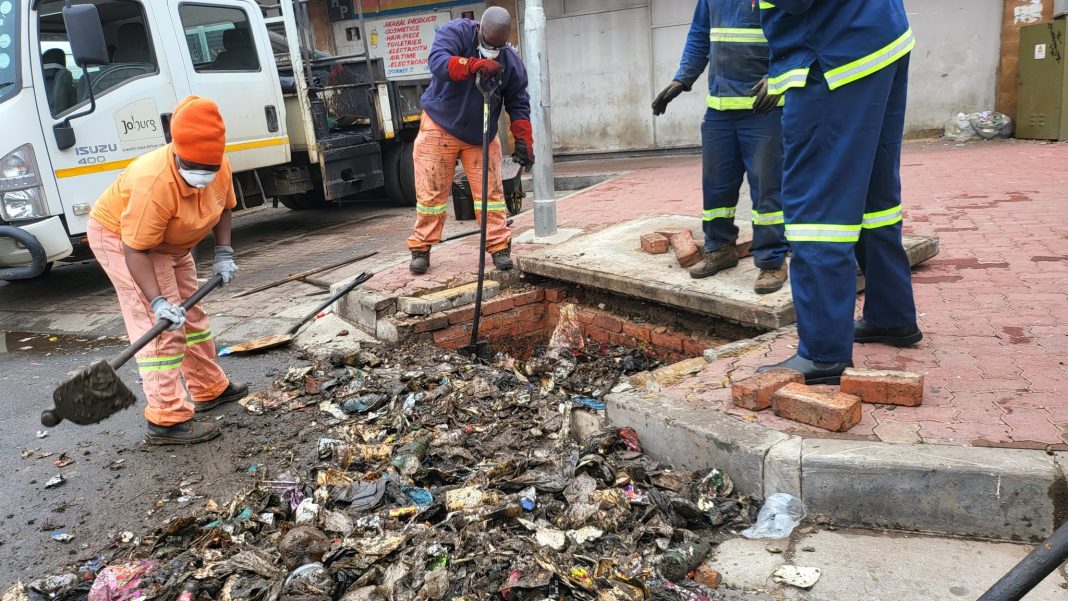By Marcus Moloko
Johannesburg Mayor Dada Morero has reaffirmed his commitment to sustained service delivery, insisting that the city’s recent clean-up efforts were not just a show for the G20 Leaders’ Summit.

“Check us on Tuesday.”
Speaking at Nasrec during the G20 Leaders’ Summit on day two, Morero said, “We will be able to sustain this. It is simple, check us on Tuesday, if we are not on the ground on Tuesday, then it means that we were doing it for the G20.”
His statement was a direct challenge to naysayers, despite his promise that the city’s leadership would continue to deliver beyond the global event.
On Tuesday, Morero was leading the Mayoral High Impact Service Delivery Programme in Roodepoort alongside multiple city entities.
The initiative brought together several city departments, including the Johannesburg Roads Agency (JRA), City Power, Johannesburg Water, Pikitup, Johannesburg City Parks and Zoo (JCPZ), and the Johannesburg Metro Police Department (JMPD).
Morero has been under public scrutiny following the city’s extensive clean-up and service delivery drive ahead of the G20 Leaders’ Summit hosted in Johannesburg. Many residents questioned whether the visible improvements were merely cosmetic, designed to impress international delegates, rather than a genuine commitment to long-term change.
On Tuesday, the city’s “bomb squad” objective was to tackle service delivery issues that plagued residents.
On the sidelines of the G20 Leaders’ Summit, Morero reiterated that the results were related to a management issue.
“I said when I came into office that the City has [the] capacity to turn around. Part of my work was to ensure that I deal with constraints within the management teams … because part of the problem … is a management issue.”
“So [we dealt] with that, and that is why we’re beginning to see results, political stability, and stability at the level of mayoral committees. All of us focused on one objective, on one job, and that is why we are seeing the results now,” Morero said.
Morero maintained that Johannesburg had the capacity and systems to deliver quality services consistently and pointed to the execution of the G20 summit as proof of the city’s logistical strength.
He acknowledged that challenges remained, but insisted that the administration was committed to identifying gaps while investing resources to address them.
The metro’s efforts aimed to demonstrate the city’s service turnaround strategy as not temporary but part of a broader strategy to restore confidence in municipal governance.
Similar initiatives have fizzled out after initial momentum.
Earlier in November, Morero defended the so-called bomb squad, intent on helping the city solve long-standing service delivery issues.
He highlighted how recent work in Eldorado Park, where residents were living with sewage running past their homes for years, was fixed.
Morero said Joburg water officials were sent to the site with repairs fast-tracked.
Similar interventions occurred at Homestead Park, near Langlaagte, where residents had raised concerns about safety after vagrants occupied the area.

The space had since been cleared and was handed back to the community, according to Morero.
Past initiatives often began with momentum but fizzled out due to poor management, political instability, or lack of sustained funding.
This track record has communities doubtful that current clean-up drives would last beyond high-profile events like the G20 Leaders’ Summit.
Morero insists that the city’s revitalisation efforts are not cosmetic. He points to a fully funded budget passed earlier in the year and stressed that the Mayoral High Impact Service Delivery Programme was designed for long-term impact.
INSIDE METROS

